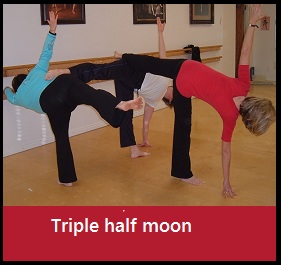The third restraint in yoga’s moral code is Asteya or non-stealing. In our community we know it as Thou shalt not steal. Respect for other’s property. Simple.
To steal. To take what you have not earned. To take what belongs to another. Why would a person take what he had not earned or take what belongs to another? This is what is not so simple, the motivation behind the action.

The motivations behind any of the yamas go back to not having faith and trust that God loves us, that God can’t or won’t supply everything we need with ease or that there is a finite amount of love and abundance in the world. When we feel that lack, we become insecure and anxious about getting what we need and thus the weeds of stealing, and entitlements slowly creep into our soul garden. But even if we are not mature enough to deal with the inner motivations, we can still practice the outer restraint of non-stealing, asteya.
The world economy is entangled and enmeshed at all levels with those who steal, gamble, bribe, extort, are greedy, and expect entitlements. In my opinion, it is this agreement with greed and stealing starting with the little people on up to the world banks and governments that is the cause of the world economic crises.
Since any average person cannot easily extract himself from this world economy, it might seem that he is powerless and that he better steal also or he will not have enough in the world to survive. But this is not true. The best way to influence the improvement in the world, local or family economy is to practice asteya. Practice honesty. Do not take that which you have not earned, or that which does not belong to you.
When most people practices asteya, there will be infinite abundance of goods, services, and resources in the world.



